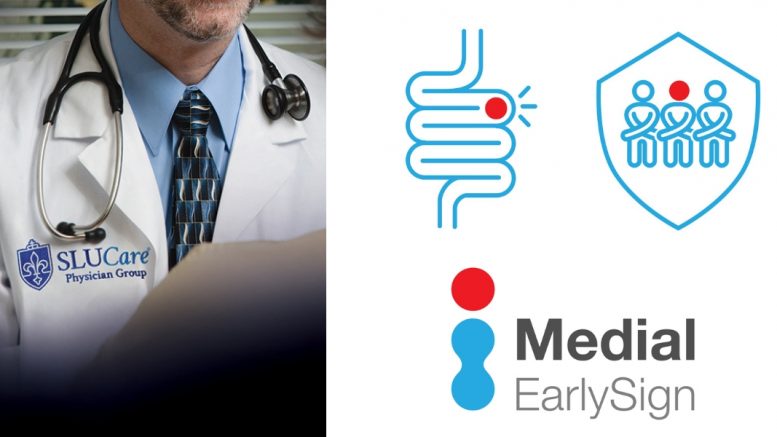New partnership launches LGI Flag, a machine-learning tool that uses electronic health record data to flag patients who may be at a higher risk for lower gastrointestinal (GI) tract disorders associated with chronic occult bleeding
LGI Flag, a machine learning-based solution developed by health care technology pioneer Medial EarlySign, will be implemented this month in SLUCare patient-care offices. The clinical risk identification tool will use ordinary medical data to help flag patients at greater risk of harboring lower GI disorders associated with chronic occult bleeding such as colorectal cancer, precancerous adenomas, polyps, irritable bowel disease, ulcers, and diverticulitis.
The system flags patients using ordinary data, collected over the course of routine care, and sophisticated machine learning techniques, enabling health care providers to focus attention on patients who are most likely to benefit from further evaluation and possible intervention, review their charts, and determine next steps.
“The ability to identify high-risk patients sooner and intervene with them earlier enables us to help improve care and long-term survival rates,” said William Manard, MD, SLUCare Family and Community Medicine physician and Chief Medical Informatics Officer. “Earlier detection and treatments for lower GI disorders can also lead to improved and more manageable outcomes. This is an ideal way to use technology to deliver a higher quality of care for our patients in the greater St. Louis community.”
Medial EarlySign spent years investigating existing electronic health record data with leading international health care providers to determine what insights could be gained by applying machine learning techniques to routine medical data. EarlySign is now working closely with SLUCare to effectively deploy these algorithms in its clinical workflow.
“By seeking provider input, we better understand the challenges they face and can help with the early detection of severe illness,” said Dr. Jeremy Orr, Chief Medical Officer for Medial EarlySign. “This is part of our approach – to understand the practical aspects of putting these predictors into clinical practice. Great models fail if they are not well implemented.”
SLUCare and Medial EarlySign were introduced to one another through the BioSTL initiative GlobalSTL, a St. Louis-based organization that recruits high-growth companies from around the world to enrich and expand St. Louis’s innovation economy and bring competitive advantages to local corporations and health systems.
“GlobalSTL’s deep connections and understanding of St. Louis’ health care organizations was key to facilitating the speedy implementation of LGI Flag within SLUCare,” said Vijay Chauhan, GlobalSTL Lead. “Leveraging EarlySign’s advanced AI technology will enable SLUCare physicians to identify patients most likely to benefit from further evaluation and possible intervention, which can improve patient outcomes, while it also provides a competitive advantage for SLUCare. St. Louis is a powerhouse in health care, and Medial EarlySign is poised to build significant presence, making our region a leader in health care innovation – outcomes that are the essence of GlobalSTL’s win-win-win strategy.”

